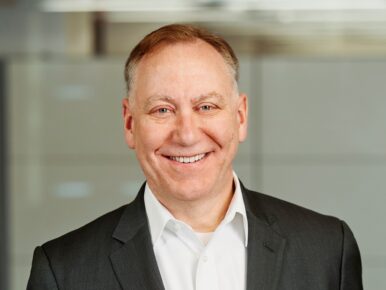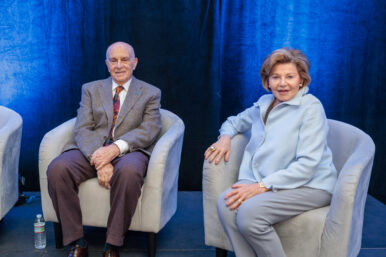Updated Oct. 31
In a new letter addressed to the University of Virginia’s rector and interim president, Democratic state Senate leaders raised concerns about U.Va.’s recent agreement with the U.S. Department of Justice.
Among the lawmakers’ allegations is that U.Va.’s agreement to end all diversity, equity and inclusion initiatives at the state’s flagship university is in violation of state law and possibly goes against federal civil rights law, although that is a matter currently under litigation in federal courts.
The letter also accuses U.Va. leaders of evading legislative oversight.
Signed by Senate Majority Leader Scott Surovell and Senate President Pro Tempore Louise Lucas, the Oct. 26 letter asks U.Va. Rector Rachel Sheridan and interim U.Va. President Paul Mahoney to “commission independent constitutional analysis” of the Oct. 22 agreement by outside legal counsel; explore whether the agreement allows withdrawal or judicial review; consider joining other public universities to “mount coordinated constitutional challenges;” and provide the General Assembly with a detailed briefing on U.Va.’s specific actions on eliminating DEI and what authority the DOJ claims for these conditions.
Mahoney publicly released a letter Friday he sent to Surovell and Lucas in response. The interim president wrote that the senators’ letter “provides a detailed analysis of the potential grounds on which the university might have sued the United States to oppose any withdrawal of federal funding based on unreasonable conditions. It does not, however, consider whether initiating a legal confrontation with the federal government would have been necessary or appropriate, particularly before we had exhausted other less costly and risky options.”
Mahoney argues that he and other U.Va. officials are “bound to consider the costs and benefits to U.Va. of different paths forward. … It is essentially a cease fire agreement, and a far better option than leaping straight into a legal battle that might be unnecessary.” He adds that Harvard decided to sue the government only after many of its research grants were terminated, a sanction not imposed on U.Va.
The Senate Democrats also questioned if Republican state Attorney General Jason Miyares is “competent and capable of providing truly independent legal advice to Virginia’s public universities in this area of the law, especially when dealing with the Trump DOJ.”
Noting that President Donald Trump has endorsed Miyares’ reelection campaign, the letter says that the state’s public universities “need legal counsel who will zealously defend state sovereignty and institutional autonomy — not counsel whose political fortunes are tied to the very administration applying the pressure.”
The gist of the senators’ argument is that the DOJ is relying on an overly expansive interpretation of federal civil rights law in a July 29 guidance memo from Attorney General Pam Bondi. “By agreeing to comply with the guidance rather than the statutes themselves as interpreted by courts, U.Va. has agreed to a more restrictive regime than federal law actually requires,” Surovell and Lucas wrote, noting that Bondi’s interpretation of the law is currently under dispute in courts.
By agreeing to cooperate with Justice, U.Va. has “established dangerous precedent for other Virginia public institutions,” they wrote.
However, Mahoney wrote in his Oct. 31 response, that he does “not share your concern that, by agreeing simply to affirm that we are not violating the law every quarter, the university has somehow surrendered itself to onerous federal interference.” He also says that he disagrees with the senators’ view that U.Va. is violating state law or failing to maintain a “comprehensive diversity, equity and inclusion strategic plan.”
The DOJ announced Oct. 22 that it had reached an agreement with U.Va. leaders, five days after the university turned down the federal government’s “compact” offering preferential treatment in federal funding in return for instituting the Trump administration‘s priorities.
The agreement with DOJ requires U.Va.’s president to report quarterly to Assistant Attorney General Harmeet K. Dhillon, head of the DOJ’s civil rights division, through the end of 2028 to confirm the university is making progress on ending all DEI initiatives, which the Trump administration argues are discriminatory against white and male employees, students and prospective job candidates.
Mahoney, a former law school dean who succeeded former U.Va. President Jim Ryan after Ryan’s resignation in July under federal pressure, said in a statement last week that the agreement does not include a monetary penalty and no external monitoring.
“We intend to continue our thorough review of our practices and policies to ensure that we are complying with all federal laws,” Mahoney wrote. “We will also redouble our commitment to the principles of academic freedom, ideological diversity, free expression, and the unyielding pursuit of ‘truth, wherever it may lead,’ as Thomas Jefferson put it.”
However, the senators’ letter says that the agreement’s ambiguity is problematic: “What specific actions constitute complete ‘elimination’ of DEI programs? How does quarterly presidential certification work when the very standards for compliance appear to be moving targets subject to ongoing DOJ interpretation?”
Also, under state law, state agencies are required to “maintain a comprehensive diversity, equity and inclusion strategic plan,” a measure enacted under former Gov. Ralph Northam. The senators write, “this is not optional — it is a mandatory requirement of Virginia law. … Yet, the DOJ agreement requires U.Va. to eliminate DEI programs as a condition of maintaining federal funding eligibility.”
But in his Oct. 31 letter to Surovell and Lucas, Mahoney wrote, “Your letter suggests that the agreement also commits the university ‘to complete planned reforms prohibiting DEI at the university,’ and argues that such a promise is vague and overreaching. That language appears nowhere in the agreement.”
Further, the state legislature is in charge of U.Va. as a state university and the bulk of its funding, the senators’ letter adds — although, unlike an earlier missive from Senate Democrats opposing the federal compact, the senators did not explicitly threaten the withholding of state funding in the Oct. 26 letter.
The letter also mentions attempts by Democratic Sen. Creigh Deeds, who represents Charlottesville, to “obtain answers about President Ryan’s forced resignation” since Aug. 1. He sent a letter to the university’s rector and vice rector with 46 questions, 38 of which were not answered, according to the senators. “The board has repeatedly claimed it cannot provide information due to ‘ongoing DOJ investigations,’ yet somehow found itself able to enter into this comprehensive agreement with DOJ without any legislative consultation or transparency,” the letter says.
Mahoney and Rector Sheridan responded to Deeds and Del. Katrina Callsen, who penned a letter Oct. 23 expressing disappointment in the university’s deal, in a letter Oct. 27.
The U.Va. officials call the agreement “essentially a truce,” and that the university “will respect DOJ’s July 29 interpretation of [civil rights laws] when consistent with applicable judicial precedents — a condition we have vetted carefully and believe is consistent with our existing policies” since the U.S. Supreme Court overturned considering race in admissions decisions. The letter does not get into the issue of Deeds’ questions that the university allegedly failed to answer.
Meanwhile on Thursday, Miyares’ office is set to present arguments to the Supreme Court of Virginia over state university governance, a politically charged dispute between the governor and the Senate, which votes on all governor board appointments, often outside the General Assembly’s regular session.
This year, Virginia Senate Democrats have rejected 22 of Gov. Glenn Youngkin’s appointees to the boards of George Mason University, Virginia Military Institute and U.Va. through committee votes, but Miyares and other Republicans argue that the entire General Assembly should be required to vote before board candidates are removed from positions of authority. Miyares will ask the Supreme Court to overturn a Fairfax County Circuit Court ruling in the senators’ favor.



